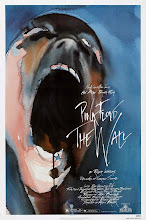
Jason Mraz (born June 23, 1977) is an American singer-songwriter, born and raised in Mechanicsville,Virginia. Mraz is of Czech descent through his grandfather, who moved to the United States from Austro-Hungary in 1915. His surname is Czech for "frost". Mraz's stylistic influences include reggae, pop, rock, folk, jazz, and hip hop.
Mraz released his debut album, Waiting for My Rocket to Come, which contained the hit single "The Remedy (I Won't Worry)", in 2002, but it was not until the release of his second album, Mr. A-Z that Mraz achieved commercial success. The album peaked at number five on the Billboard Hot 200 and sold over one hundred thousand copies in the US. In 2008, Mraz released his third studio album, "We Sing. We Dance, We Steal Things". The album debuted at number three on the Billboard 200 and was a commercial success worldwide, peaking in the top ten of many international charts.
 Mraz's international breakthrough came with the release of the first single from the album, "I'm Yours". The single peaked at number six on the Billboard Hot 100, giving Mraz his first top ten single. The song was on the Hot 100 for 76 weeks, besting the previous record of 69 weeks held by LeAnn Rimes' "How Do I Live". The song was a huge commercial success in the US with it receiving a triple-Platinum certification from the RIAA for sales of over three million. The song was successful internationally and topped the charts in New Zealand and Norway and peaking in the top ten of multiple international charts.
Mraz's international breakthrough came with the release of the first single from the album, "I'm Yours". The single peaked at number six on the Billboard Hot 100, giving Mraz his first top ten single. The song was on the Hot 100 for 76 weeks, besting the previous record of 69 weeks held by LeAnn Rimes' "How Do I Live". The song was a huge commercial success in the US with it receiving a triple-Platinum certification from the RIAA for sales of over three million. The song was successful internationally and topped the charts in New Zealand and Norway and peaking in the top ten of multiple international charts.
Mraz attended The American Musical and Dramatic Academy in New York City, for a short time, studying musical theater before moving to San Diego.
Mraz is a vegan, and owns an avocado farm in Northern San Diego County near Fallbrook




.jpg)








.jpg)














